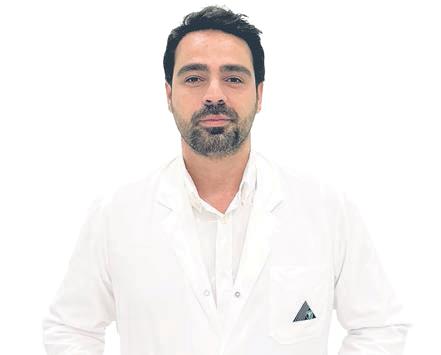Revision after obesity surgery

The snowballing growth of obesity has also increased the number of bariatric surgeries. However, this surgery isn't the only option; some patients are then resorting to revisional bariatric surgery. Dr. Anıl Ergin, Associate Professor of General Surgery and Bariatric and Metabolic Surgery, explained, "Patients who regain weight after bariatric surgery may need revisional surgery for various reasons. The most common cause of these procedures is weight regain, also known as 'regain.' Furthermore, problems such as reflux, postoperative complications, gastric stenosis, leaks, and abscesses can also lead to the need for further surgery."
Stating that the need for revisional surgery varies from patient to patient, Assoc. Prof. Dr. Ergin said: "While literature studies show that this rate varies between 5 and 20 percent , we see that this rate can be as high as 60 percent in some studies. Among the reasons underlying this difference, inappropriate patient selection, inappropriate surgical technique, and lack of postoperative follow-up play important roles. However, in clinics that implement the system properly, use the technique correctly, and follow up patient well after surgery, the rate of need for revisional surgery is around 5-10 percent. Therefore, these criteria are extremely important to us."

PREVENTS SERIOUS DISEASES Assoc. Prof. Dr. Ergin stated that revisional bariatric surgery is important not only for weight control but also for preventing serious illnesses, saying, "For example, reflux is not only a problem that reduces quality of life; it can also damage the stomach anatomy and even lead to esophageal cancer. Therefore, surgical corrections are critical for the patient's quality of life. Furthermore, since recovery from complications such as stenosis, leaks, and abscesses that developed after the initial surgery is vital, revisional procedures will be necessary. Furthermore, after weight loss, for example, a patient who has recovered from diabetes may later experience a return of chronic diseases related to weight gain. Therefore, revision procedures may be considered to combat the disease."

50,000 PEOPLE UNDERGO OBESITY SURGERY ANNUALLY Assoc . Prof. Dr. Ergin stated that the increasing number of primary obesity surgery cases has brought revisional surgical procedures to the forefront, saying, "The number of obesity surgeries, which was around 3,000-4,000 per year in Turkey in 2013, has now exceeded 50,000. This is a truly significant increase. Over 500,000 bariatric surgeries were performed worldwide last year. This number represents only 1 percent of patients who actually need surgery. However, as the number of surgeries increases, the need for revision surgeries naturally increases as well."
Lifetime Follow-Up Underlining that the most important way to reduce the need for revision is thorough pre- and postoperative evaluation and continuous follow-up of the patient, Assoc. Prof. Dr. Ergin stated: "Lifelong follow-up after surgery is paramount to us. Because if we want to reduce revision rates and ensure the patient receives sufficient benefit from the initial surgery, we absolutely must follow the patient for life. Furthermore, it is possible to prevent weight regain through weight control, diet adherence, exercise, lifestyle changes, and regular endoscopic check-ups. However, both the patient and the physician must take joint responsibility in this process."
sabah





